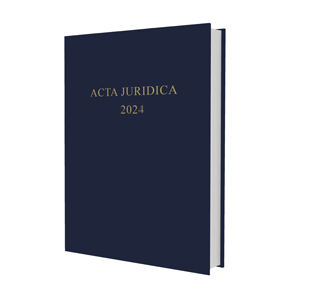The present as history: Workers’ struggles and the law during and after apartheid

The present as history: Workers’ struggles and the law during and after apartheid
Authors Kally Forrest & Edward Webster
ISSN: 1996-2088
Affiliations: Former trade unionist and editor of the South African Labour Bulletin; Associate of the Southern Centre for Inequality Studies, and the Society, Work and Politics Institute; Fellow at the Johannesburg Institute for Advanced Studies; Edward Webster passed away on 6 March 2024. At the time, he was a Research Professor at the Southern Centre for Inequality Studies and held the
position of Professor Emeritus in the School of Social Sciences at the University of the Witwatersrand
Source: Acta Juridica, 2024, p. 1-31
https://doi.org/10.47348/ACTA/2024/a1
Abstract
Black workers in South Africa in the 1970s fought successfully for their right to be included in the law. Through militant struggles, and with the aid of pioneering lawyers like Halton Cheadle, they produced an inclusive Labour Relations Act (LRA) and the attendant Basic Conditions of Employment Act. Through its independent power base connected to the shopfloor, the labour movement gave trade unions the capacity to mobilise and restrain members, which they used to negotiate to expand legal rights and organisational space and pursue worker control at workplace and industry levels. However, the LRA, and its employer–employee binary, marginalises informal workers, and these workers are now waging a battle for recognition. The struggle for informal workers’ rights unfolds in a more challenging environment than the 1970s, and no significant changes in law have emerged in the last twenty years of organising. This makes redefining the LRA complex, as informal workers may be own account workers and micro-employers. Labour law is not responsive to the needs of workers in the informal economy and an experimental environment is encouraged. The world of work has changed to such an extent that perhaps we now need the equivalent of the Wiehahn Commission, which transformed the world of labour in the 1980s.